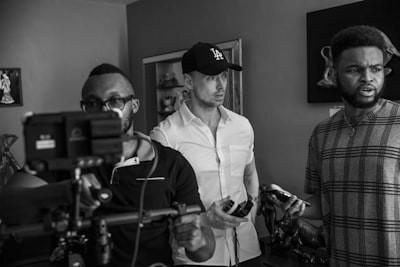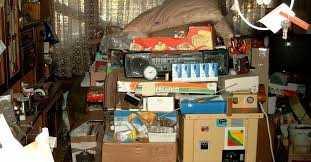The Psychology Behind Hoarding
Curated from: psychologytoday.com
Ideas, facts & insights covering these topics:
4 ideas
·969 reads
2
Explore the World's Best Ideas
Join today and uncover 100+ curated journeys from 50+ topics. Unlock access to our mobile app with extensive features.
Hoarding
Severe hoarding afflicts about one in every fifty people.
Their compulsion causes the hoarders to suffer mentally, emotionally, physically, and financially. Relationships seem to suffer the most as families and friends struggle to cope with their condition.
41
319 reads
Hoarding is a type of OCD
Hoarding is a type of obsessive-compulsive disorder (OCD).
Hoarding is accompanied by varying levels of anxiety and often, depression as well. Peculiar commonalities among hoarders include severe emotional attachment to inanimate objects and extreme anxiety when making decisions.
50
285 reads
Symptoms of a hoarding disorder
Hoarding can be just a personal preference, but it can be viewed as a disorder when that behavior starts to negatively impact daily functioning. Symptoms of a hoarding disorder:
- There is difficulty getting rid of possessions, regardless of their value or lack thereof.
- The difficulty in discarding possessions is due to distress associated with getting rid of them.
- The difficulty in discarding possessions leads to clutter and compromise of living spaces.
- Hoarding creates clinically significant distress or impairment in functioning, including the ability to maintain a safe space.
41
161 reads
Hoarding tendencies
There are known risk factors that cause someone to become a hoarder, such as experiencing a traumatic event, persistent difficulty making decisions, and having a family member that is a hoarder.
Hoarding tendencies often emerge in adolescence. Many hoarders are also socially withdrawn and may hoard to find comfort.
38
204 reads
IDEAS CURATED BY
Charlotte 's ideas are part of this journey:
Learn more about mentalhealth with this collection
How to listen to your body's hunger and fullness cues
How to develop a positive relationship with food
How to trust yourself around food
Related collections
Similar ideas
3 ideas
Are You Really OCD?
psychologytoday.com
4 ideas
5 ideas
What Is Compulsive Behavior?
thoughtco.com
Read & Learn
20x Faster
without
deepstash
with
deepstash
with
deepstash
Personalized microlearning
—
100+ Learning Journeys
—
Access to 200,000+ ideas
—
Access to the mobile app
—
Unlimited idea saving
—
—
Unlimited history
—
—
Unlimited listening to ideas
—
—
Downloading & offline access
—
—
Supercharge your mind with one idea per day
Enter your email and spend 1 minute every day to learn something new.
I agree to receive email updates

